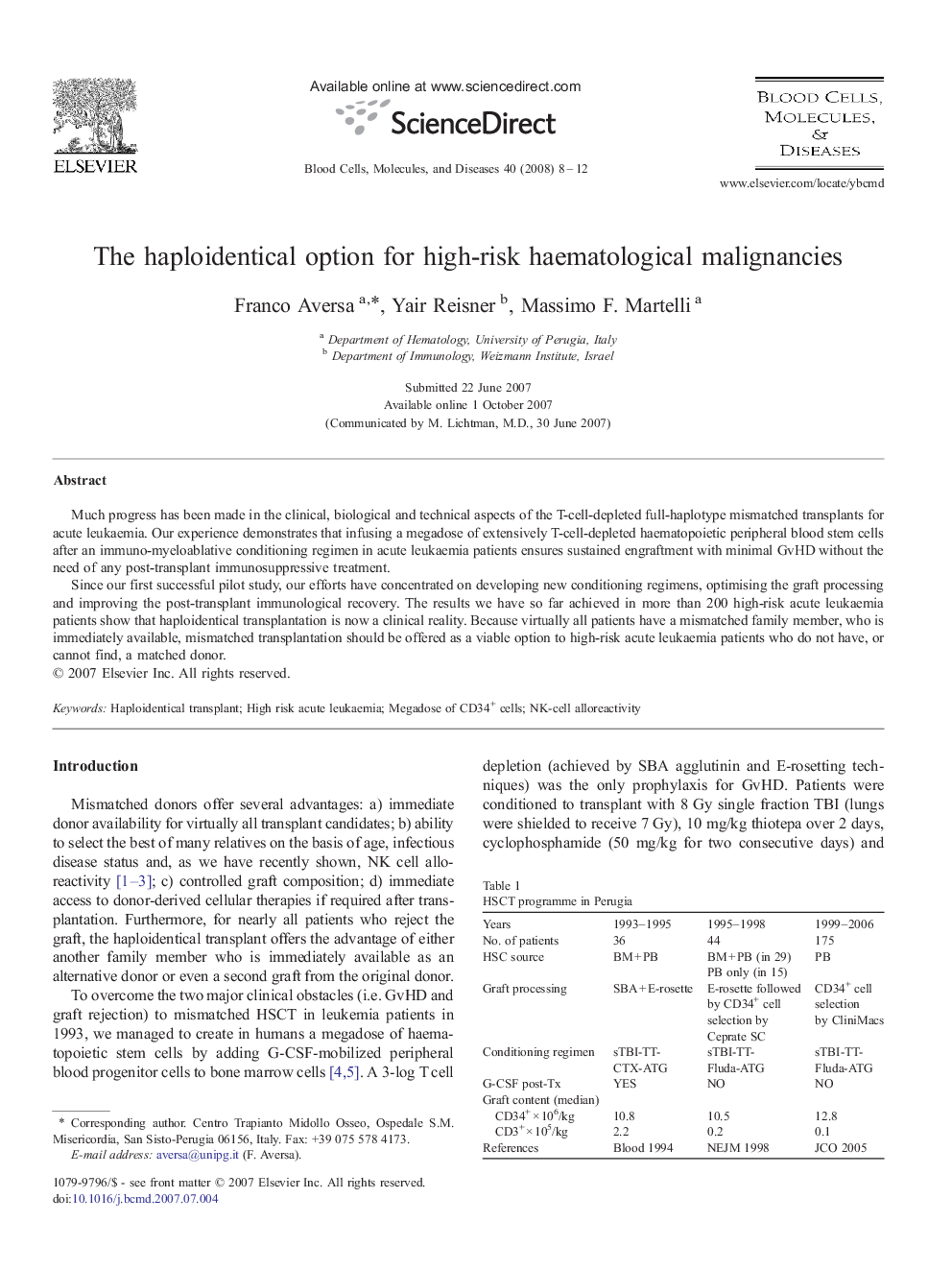| کد مقاله | کد نشریه | سال انتشار | مقاله انگلیسی | نسخه تمام متن |
|---|---|---|---|---|
| 2828078 | 1162475 | 2008 | 5 صفحه PDF | دانلود رایگان |

Much progress has been made in the clinical, biological and technical aspects of the T-cell-depleted full-haplotype mismatched transplants for acute leukaemia. Our experience demonstrates that infusing a megadose of extensively T-cell-depleted haematopoietic peripheral blood stem cells after an immuno-myeloablative conditioning regimen in acute leukaemia patients ensures sustained engraftment with minimal GvHD without the need of any post-transplant immunosuppressive treatment.Since our first successful pilot study, our efforts have concentrated on developing new conditioning regimens, optimising the graft processing and improving the post-transplant immunological recovery. The results we have so far achieved in more than 200 high-risk acute leukaemia patients show that haploidentical transplantation is now a clinical reality. Because virtually all patients have a mismatched family member, who is immediately available, mismatched transplantation should be offered as a viable option to high-risk acute leukaemia patients who do not have, or cannot find, a matched donor.
Journal: Blood Cells, Molecules, and Diseases - Volume 40, Issue 1, January–February 2008, Pages 8–12